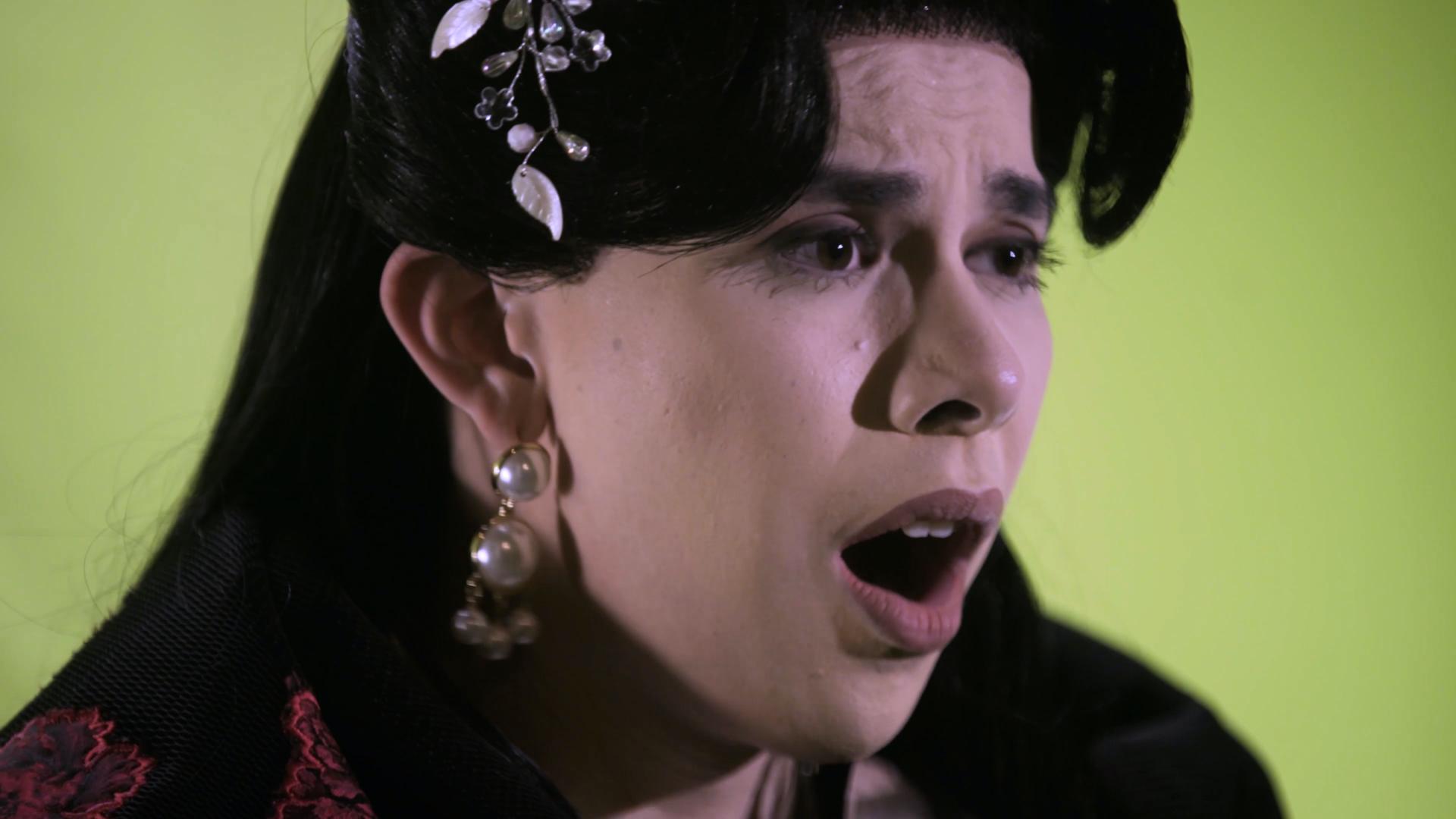
Aria (from Study for Nine Figures and Voices in Search of a Spectacle)
This work depicts a performance of an aria from Atilla, an Italian opera by Giuseppe Verdi, as a reference to the martial-colonial circumstances of the Philippines. Featuring a canonical work trumpeting national sentiment in Italian culture, Aria draws parallels between the nineteenth-century opera and cultural politics in the Philippines, which are driven by tensions between the centre and the periphery, high and low culture, and the generative consequences of colonial conflict. Aria also explores how former first lady Imelda Marcos instrumentalised cultural production for political purposes. Under Imelda Marcos’s patronage, paintings by European masters from the Early Renaissance to late modernism were amassed using public funds, while government investment in Western art forms like ballet, classical music, and opera flourished. At the same time, the Marcos regime promoted a false version of indigenous history in the Philippines, one that emphasised the myth of a monolithic culture, to help cement a nationalist and essentialist identity in the country.
With performances by drag artist Naia and soprano Krystl Buesa, the video also features music from the Bayanihan Dance Company, a prominent state-sponsored Philippine folk dance company that was a key political tool in fabricating the image of cultural authenticity that underpins Marcosian state ideology.
- Year2021
- Runtime6 minutes
- LanguageItalian
- CountryPhilippines
- DirectorCristian Tablazon
Aria (from Study for Nine Figures and Voices in Search of a Spectacle)
This work depicts a performance of an aria from Atilla, an Italian opera by Giuseppe Verdi, as a reference to the martial-colonial circumstances of the Philippines. Featuring a canonical work trumpeting national sentiment in Italian culture, Aria draws parallels between the nineteenth-century opera and cultural politics in the Philippines, which are driven by tensions between the centre and the periphery, high and low culture, and the generative consequences of colonial conflict. Aria also explores how former first lady Imelda Marcos instrumentalised cultural production for political purposes. Under Imelda Marcos’s patronage, paintings by European masters from the Early Renaissance to late modernism were amassed using public funds, while government investment in Western art forms like ballet, classical music, and opera flourished. At the same time, the Marcos regime promoted a false version of indigenous history in the Philippines, one that emphasised the myth of a monolithic culture, to help cement a nationalist and essentialist identity in the country.
With performances by drag artist Naia and soprano Krystl Buesa, the video also features music from the Bayanihan Dance Company, a prominent state-sponsored Philippine folk dance company that was a key political tool in fabricating the image of cultural authenticity that underpins Marcosian state ideology.
- Year2021
- Runtime6 minutes
- LanguageItalian
- CountryPhilippines
- DirectorCristian Tablazon
